3 Ways I Relate To Jeffrey Wright's Character In American Fiction As A Black Author, And 2 Ways That I Don't
To be, or not to be a stereotypical Black author? That is the question.
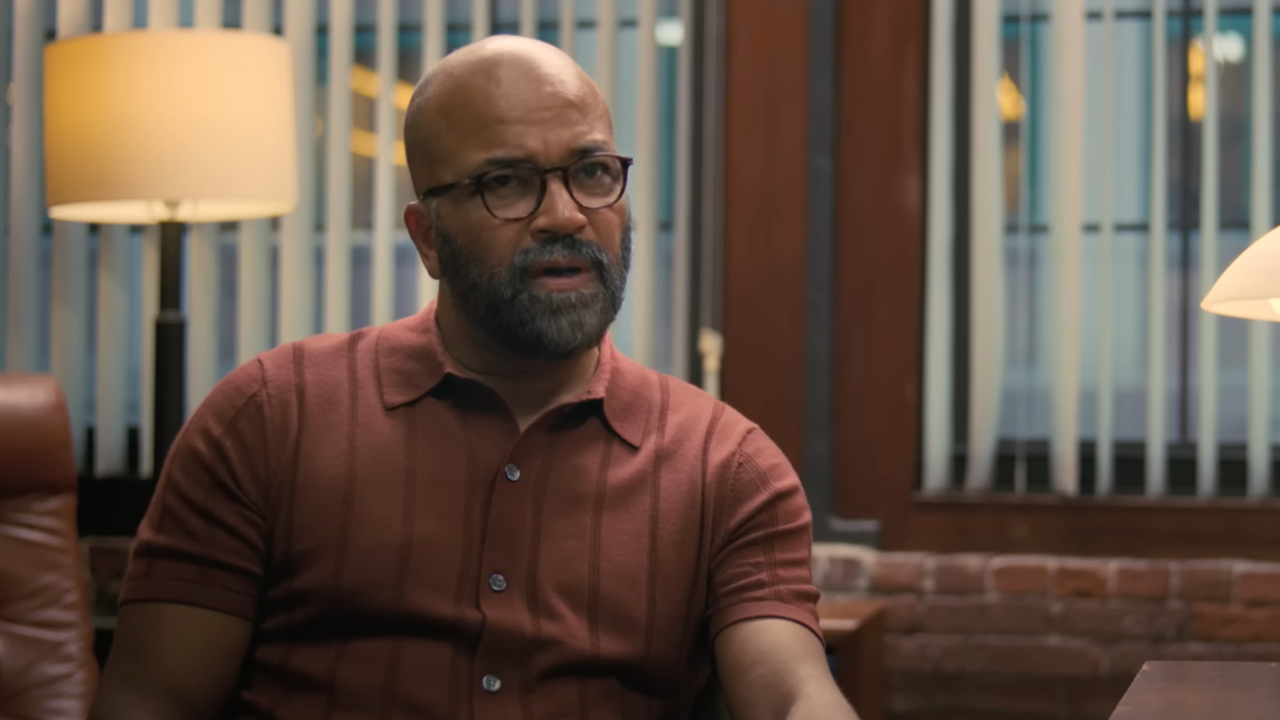
I'm a teacher, and I love my job, but do you want to know my true love? Writing. Namely, writing fiction. I have an awesome agent, and she’s doing her best to get my stories out into the world. But, as a Black author, that isn’t always easy.
Things seem to be getting a little bit better for authors of color, but I definitely felt like I connected with Jeffrey Wright’s character in the Oscar-nominated film, American Fiction, in a number of ways (it wasn't that long ago that people were writing about how white the book industry is). That said, I also found that I didn’t connect with him in certain regards. Here’s why.
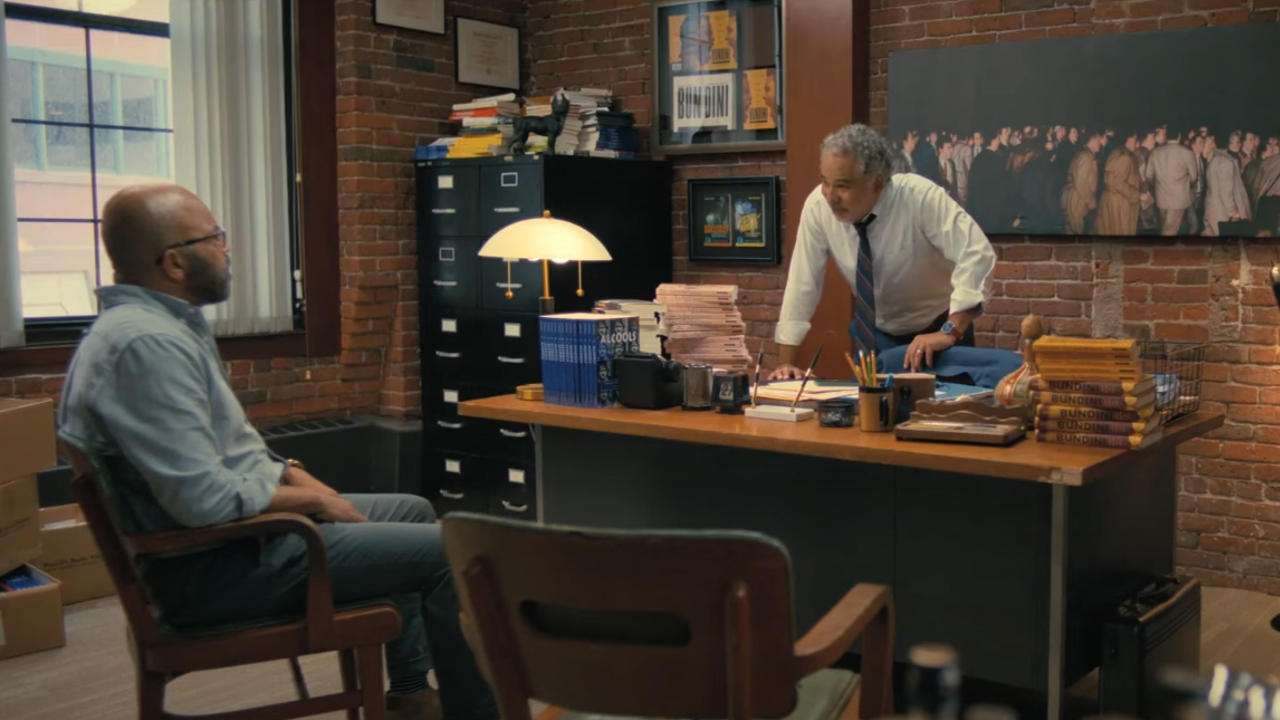
Why I Relate: It Really Does Feel Like The Book Industry Is Constantly Chasing Trends
Though the novel, Erasure, that this movie is based off of came out in 2001, it’s extremely relevant. Or maybe, the book industry has just always been chasing trends.
Nevertheless, Erasure feels particularly prescient since it kind of foretold the growing pains that the industry would go through when publishers were seemingly seeking out novels from BIPOC authors. This was following several events of police brutality, which made frequent headlines.
In fact, I remember prior to finding my current agent (who I adore), some of the agents who I queried wondered if I could change some details in one story so that the police could be antagonistic toward my main character. Now, while I’m well aware that there are some cops who don’t exactly follow the rules when it comes to their jobs, this book was definitely not about that.
There have been excellent books written about that topic by Black authors, such as The Hate U Give (which was later a well-reviewed movie) by Angie Thomas, and Dear Martin by Nic Stone, but my novel was not that kind of book. It was a superhero story, for crying out loud, and it didn’t even involve the police. That said, two separate agents wanted the inciting incident to be my protagonist being assaulted by a cop, which I didn’t want to do, and I told them as such.
And, we see something similar in American Fiction. Jeffrey Wright’s character, Thelonious “Monk” Ellison, writes heady, cerebral books. But, they’re not necessarily “Black” books, i.e. they don’t fall into stereotypical Black trappings. In his mind, he was writing “Black” books because he was a Black author (he’s not wrong).
Your Daily Blend of Entertainment News
However, when another Black author writes a novel titled We Lives in Da Ghetto that he deemed to be pandering to White audience’s perceptions about Black people, he decided to, as a lark, write his own book titled My Pafology, that indulged in all of the Black stereotypes. And, as I’m sure you already know, it was a massive success.
Much like Ellison, I’d be both sickened by this success, but also delighted to finally have the recognition I’ve always felt I deserved. So, I get why he begrudgingly accepted his success, even though he was super cynical about it.
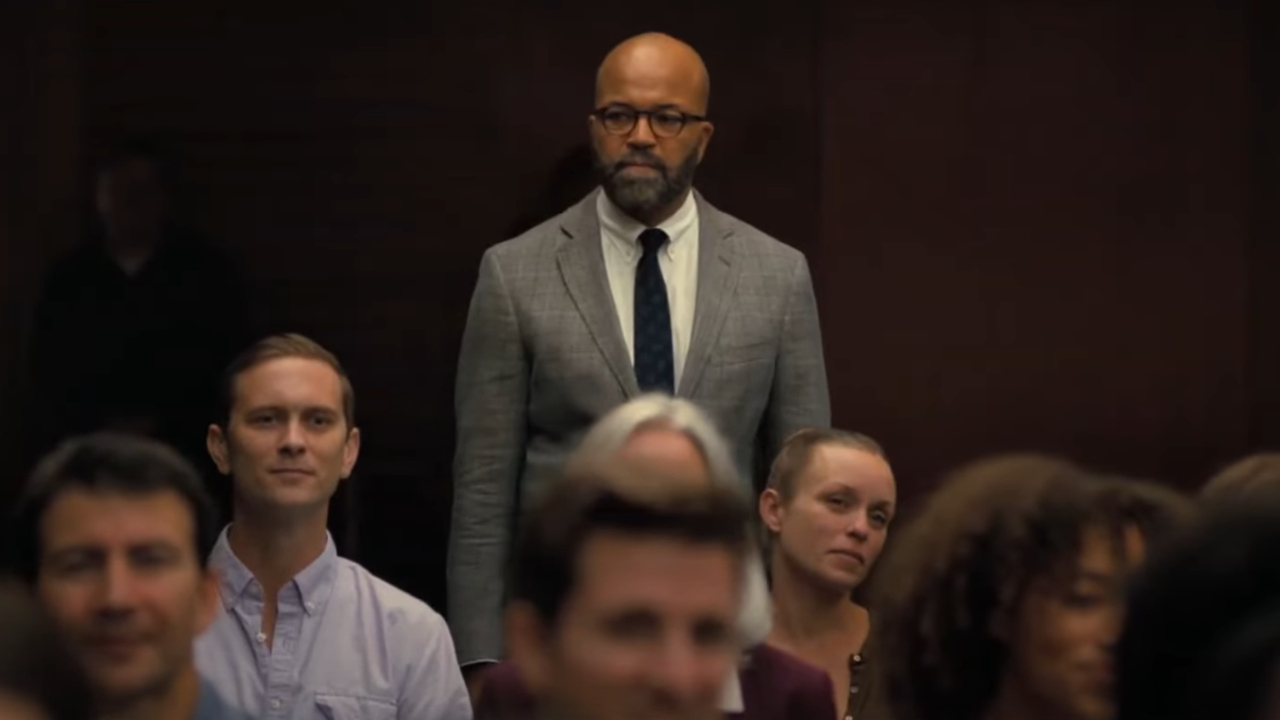
Why I Don't Relate: That Said, I Don't Chase Trends Like Jeffrey Wright's Character
Now, I won’t spoil the movie in case you haven’t seen it yet, but a part of the reason why Ellison took the money that came with selling My Pafology is because somebody in his family needed medical attention. If Ellison wasn’t in dire need, he might not have gone through with the process.
However, once he did go through with it, he didn’t exactly turn down the money (or secret fame) that came along with it. In fact, he even doubled down, tempting the publishers to drop him by coming up with a much more controversial, four letter word title for his book that he knew wouldn’t be put on store shelves…until it was.
In this way, Ellison had chased a trend, whether he was willing to admit it to himself, or not, and that’s just something that I will not do, probably much to my detriment. Because when I wrote my superhero story, I didn’t write it because superheroes were in at the time. I wrote it because I love superheroes.
My latest book is about video games. I didn’t write it because video games are in. I wrote it because I love video game and the best video game movies.
Those two books are out there now, waiting patiently for an editor to take a liking to them, so in the meantime, I’m writing a book about kaiju. And, it’s not because Godzilla is in, but because (Say it with me!) I love kaiju and movies like Godzilla Minus One! Whether any of these books gets picked up really isn’t up to me, but I’ll never chase a trend, or even write toward one. I don’t even think I know how.
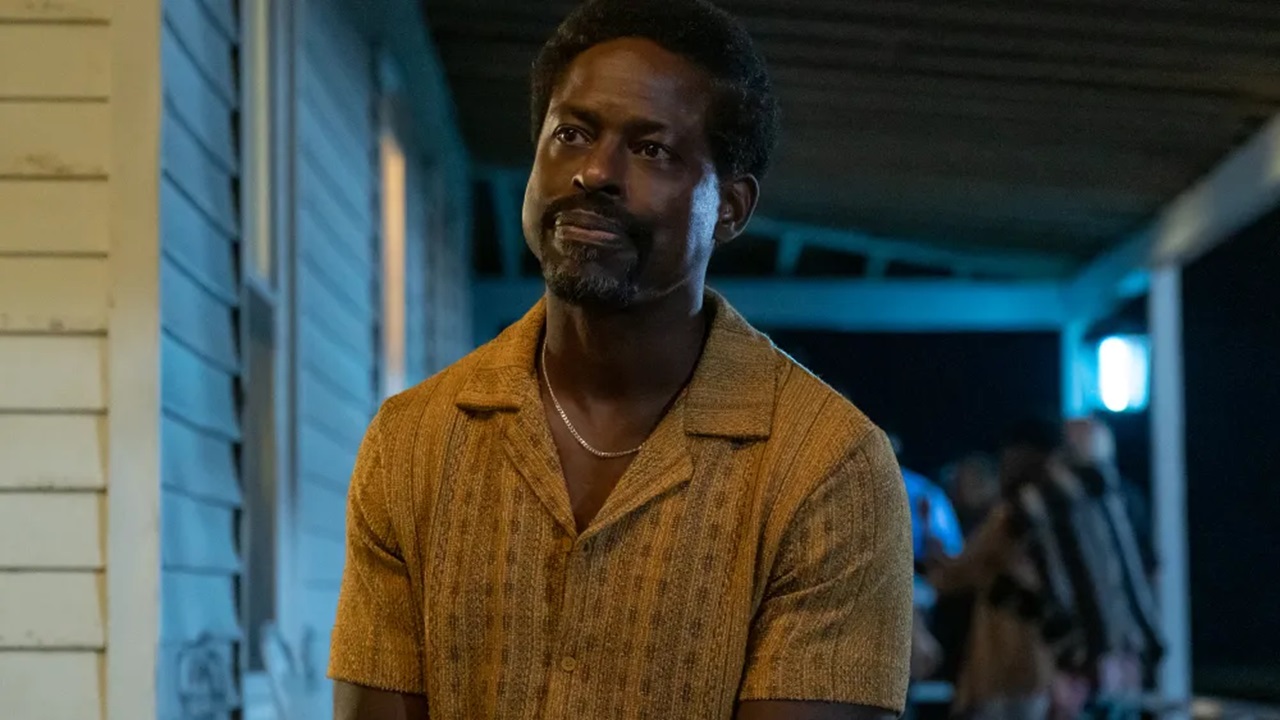
Why I Relate: It Does Seem Like Minorities Are Often Expected To Write Issues Books
One thing that kind of bugs me is that it does seem like minorities are often expected to write issues books. What I mean by that is, it seems like books written by minorities (or at least many of the ones that get published) seem to have some kind of racial underpinning.
Now, this isn’t so much true in books outside of America, as it seems like many diverse authors around the world have the freedom to write whatever kinds of books they want without implementing race into them. But, I’ve noticed that many of the books that I read by people of color seem to have race as a thematic undercurrent in their work.
This might just be the story that the author wanted to tell, much like the important movies of Jordan Peele. And, that’s cool. I love Jordan Peele.
But, as somebody who reads books from pretty much every race, I don’t often see white writers writing about the white experience. Not that I would particularly want to read that kind of story, but it seems like white authors don’t need to say anything about race, while I find that race frequently pops up in books by people of color.
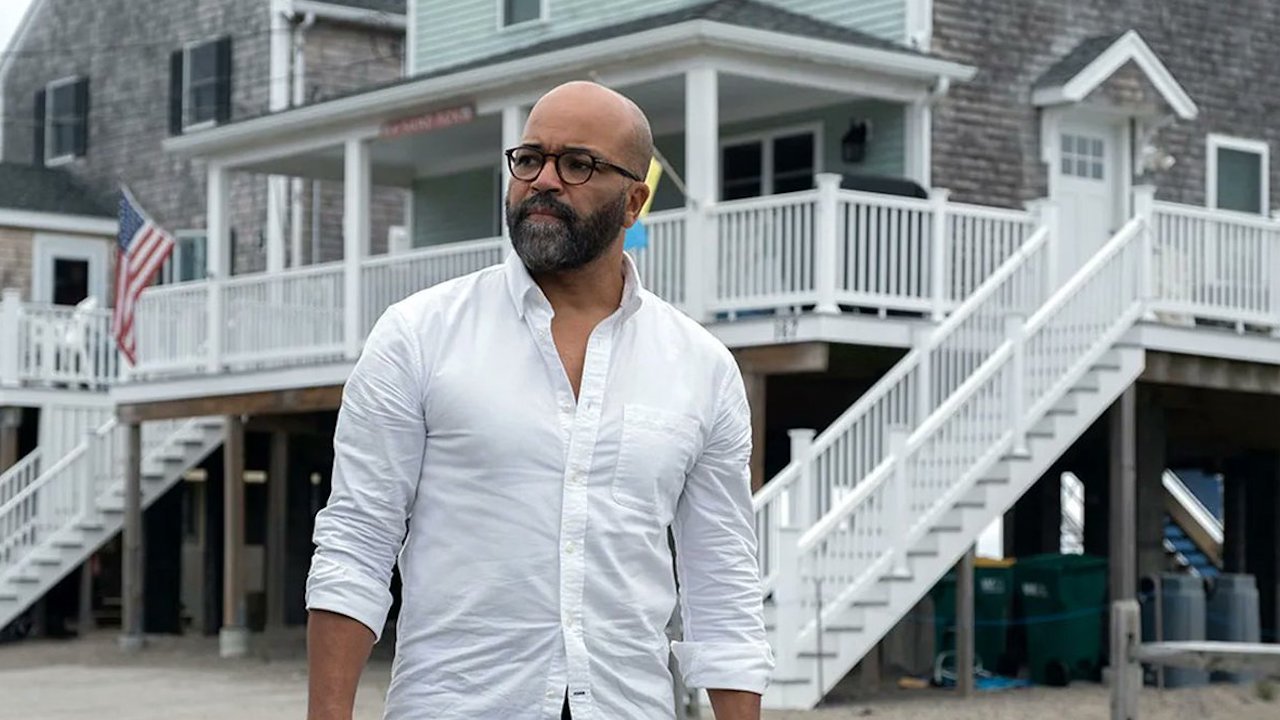
Why I Don't Relate: I Don't Live In An Ivory Tower
I like Ellison’s character for the most part, but I also kind of dislike him. It’s not entirely his fault. It’s the way he was raised. But, he definitely looks down upon other people, even within his own family.
In a lot of ways, when Ellison sneered at a Black female author for writing We Lives in Da Ghetto, he admitted he didn’t even read it when he went on to write his own “Black” story. This just screams of ignorance. All he really had to go on was a brief reading the author did in person, and he believed it could inform and shape his entire opinion about her work, which is just ridiculous.
So, in that way, I never look down upon other authors, or even the readers of books I don’t particularly enjoy. People like what they like, and I’m never condescending to those people. Especially not my audience. God bless every one of my readers.
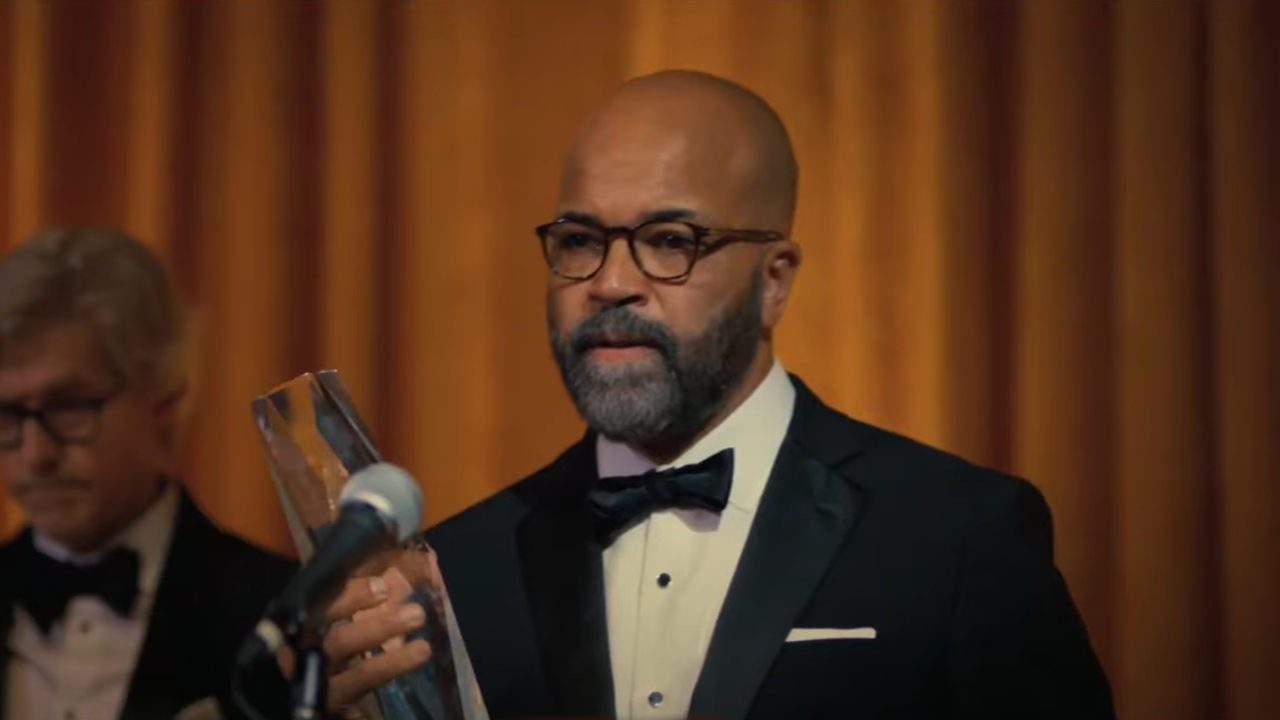
Why I Relate: I Do Find Myself Incredibly Lonely Sometimes, Especially As A Black Author
Lastly, Ellison is an incredibly lonely character, as he doesn’t really feel like he relates to anyone, even his lovely girlfriend, who is just trying to get more involved in his life.
And, I relate to this. I don’t think it’s a controversial statement to say that every novelist is at least a little bit lonely. How can we not be when we spend so much time alone, talking to ourselves through the voices we’ve created.
I think it’s especially lonely as a Black author, though, as we’re often wrestling with all of these ideas perpetuated by the media swirling around in our heads. For example, when agents (who were white, by the way) requested that maybe I should make cops villainous in my story, I second-guessed myself and thought, “Should I?” I mean, I get stories about social justice, and I understand their importance, but is that really my place to talk about? Especially since I primarily write for children?
I don’t know, but it ultimately leaves me feeling isolated and alone, and so I get that aspect of Ellison’s character. It speaks to me.
Have you watched American Fiction yet? If you haven’t, and you’re a Black author, you definitely should. You likely won’t be disappointed.

Rich is a Jersey boy, through and through. He graduated from Rutgers University (Go, R.U.!), and thinks the Garden State is the best state in the country. That said, he’ll take Chicago Deep Dish pizza over a New York slice any day of the week. Don’t hate. When he’s not watching his two kids, he’s usually working on a novel, watching vintage movies, or reading some obscure book.
